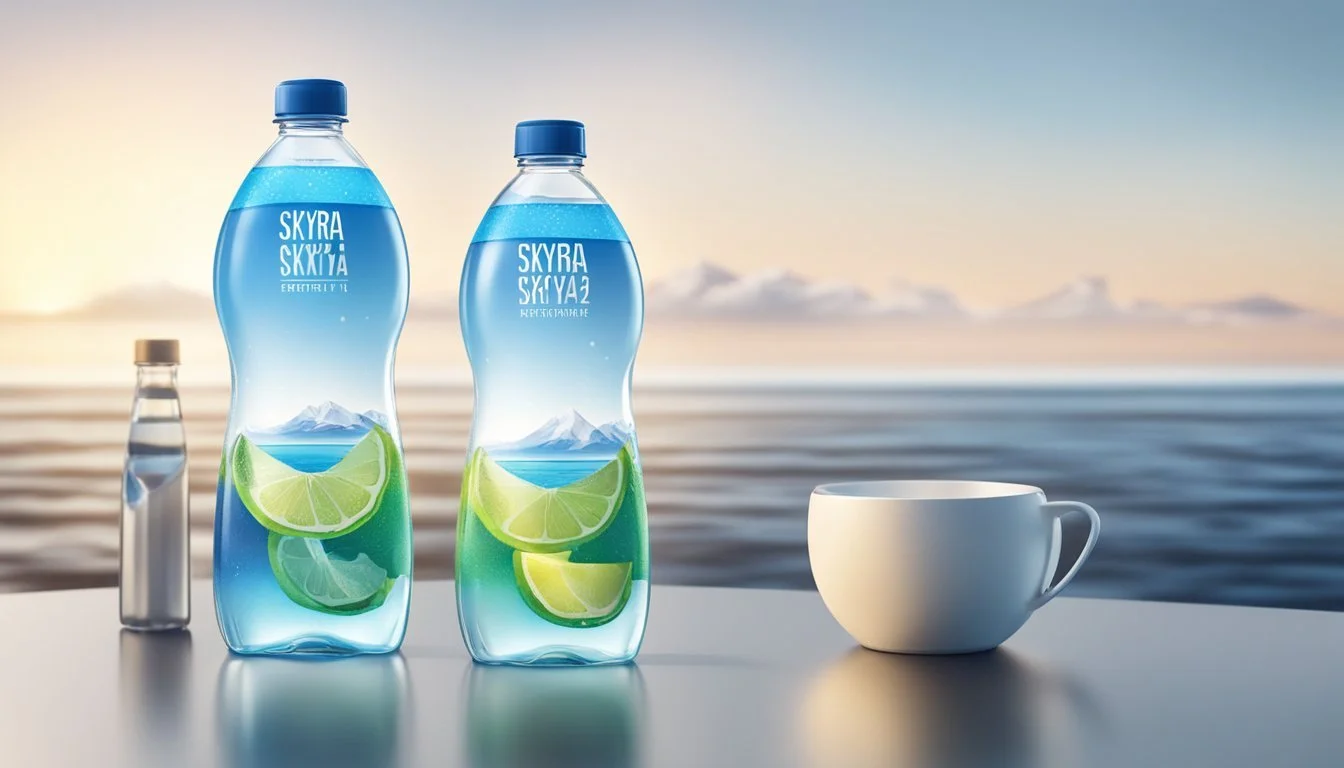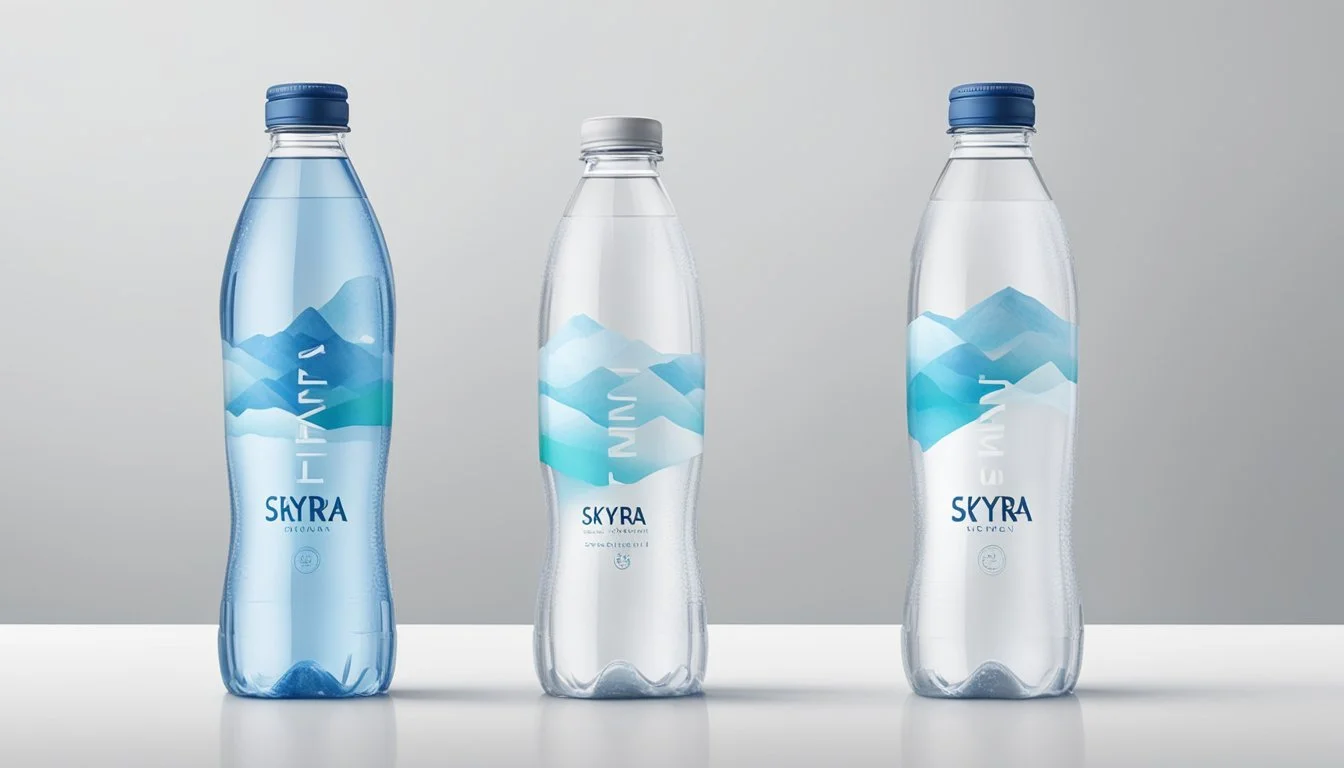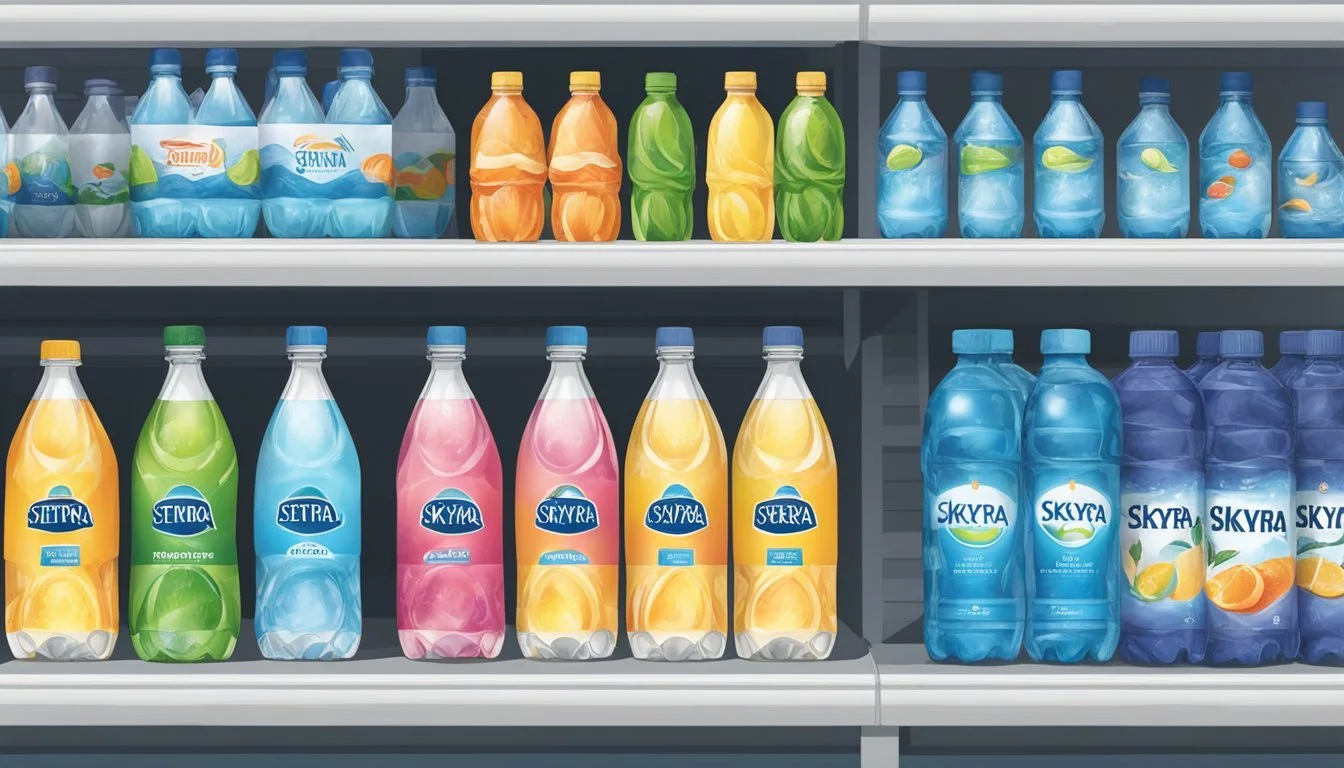Eternal vs. Skyra
Which Bottled Water is Better for Your Health?
When it comes to bottled water, consumers often seek out the best in terms of taste, purity, and hydration. Eternal and Skyra are two premium brands that frequently come up in these discussions. Many people are drawn to Eternal Water for its alkaline properties and convenient packaging, making it a favorite among those looking for a daily hydration boost.
Skyra, on the other hand, is renowned for its unique sourcing from Icelandic springs, promoting a natural and refreshing experience. While both brands offer high-quality hydration, Skyra edges out for its exceptional purity and mineral content. Comparing these two contenders, readers can find the right choice tailored to their preferences and lifestyle needs.
As interest in premium bottled waters continues to grow, understanding the nuances between brands like Eternal and Skyra becomes essential. The following comparison will delve deeper into factors such as taste, sourcing, and health benefits to help you make an informed decision.
Evaluating Water Quality
The quality of bottled water depends on several critical factors, including pH levels, mineral content, source water, and purification processes. Each of these components plays a significant role in determining the overall quality and health benefits of the water.
Understanding pH Levels
pH levels in water indicate its acidity or alkalinity, measured on a scale from 0 to 14. Most bottled waters range between 7 (neutral) and 10 (alkaline). For instance, Eternal Water boasts a naturally alkaline pH level, typically around 7.8 to 8.2, derived from its underground aquifers.
Skyra, on the other hand, has a pH level close to 8.8, attributed to its Icelandic glacial origins. Such alkaline levels are often sought after for their potential health benefits. It's vital to note that excessively high or low pH levels can make water taste unpleasant and may not be ideal for regular consumption.
Mineral Content Analysis
Mineral content is another key factor in assessing water quality. Minerals such as calcium, magnesium, and potassium contribute to the water's taste and nutritional value. Eternal Water contains natural minerals sourced from ancient artesian aquifers, giving it a unique profile.
Skyra is rich in minerals due to the volcanic rocks through which the glacial water flows, absorbing elements like calcium and magnesium. The mineral analysis of both brands should be scrutinized, especially for those with specific dietary needs or health concerns, to ensure optimal benefit and safety.
Assessment of Source Water
The source of water greatly influences its purity and quality. Eternal Water is sourced from protected underground aquifers in the United States. These aquifers are naturally insulated from pollutants and contaminants, ensuring clean and fresh-tasting water.
Skyra originates from Icelandic glaciers, renowned for their pristine and untouched environment. The glacial meltwater is naturally filtered through volcanic rocks, contributing to its purity. Evaluating the source reveals whether the water is less likely to contain impurities commonly found in tap water.
Purification and Filtration Processes
The processes used to purify and filter water determine the removal of contaminants and preservation of beneficial minerals. Eternal Water is naturally filtered through layers of rock and sand before being bottled without additional treatments. This ensures that the water retains its natural mineral composition.
Skyra employs advanced filtration techniques that include micro-filtration and reverse osmosis to eliminate impurities. The water undergoes ultraviolet exposure to kill any potential bacteria, ensuring a high purity level. Understanding these processes helps consumers know how each brand maintains the integrity and safety of its water.
By examining these factors—pH levels, mineral content, source, and purification methods—consumers can make informed decisions about the water they choose to drink.
Health and Hydration
Balancing health benefits and hydration needs is crucial when choosing between Eternal and Skyra bottled water. The discussion will explore the electrolytes and health impacts associated with each brand.
Electrolytes and Hydration
Eternal Water is known for its naturally alkaline properties, boasting a balanced blend of essential minerals such as calcium, magnesium, and potassium. This blend is crucial for maintaining proper hydration and supporting overall bodily functions. Consumers often appreciate Eternal Water for its ability to support electrolyte balance without the addition of artificial ingredients.
Skyra Water, on the other hand, derives its high alkalinity naturally from volcanic rocks, offering a slightly different mineral profile. While also rich in magnesium and other essential minerals, Skyra’s unique geological sourcing may provide a subtle but distinct hydrating experience. Both brands aim to enhance the body's electrolyte levels, aiding in muscle function and potentially reducing exercise-induced cramps.
Health Impacts of Bottled Water
When considering health impacts, Eternal Water emphasizes purity, free from artificial sweeteners and preservatives. Its micro-filtration and reverse osmosis process ensure a high level of purity. The alkaline nature of the water, combined with its mineral content, can help neutralize acidity in the body, which is beneficial for those with dietary sensitivities.
Skyra Water shares similar health benefits with its natural alkalinity and mineral richness. It too avoids artificial additives, which aligns with health-conscious consumers. Drinking Skyra not only helps with hydration but can support overall well-being by contributing to a balanced pH level in the body. The natural filtration through volcanic rocks may also provide a unique source of minerals compared to other bottled waters.
Brand Profiles
Both Eternal and Skyra bottled water brands offer unique attributes that appeal to health-conscious consumers and those who appreciate high-quality water with distinct sourcing and benefits.
Eternal Water
Eternal Water is sourced from naturally alkaline springs in the United States. It prides itself on being free from any human intervention, maintaining its pH level as nature intended. The water originates from deep artesian aquifers, ensuring superior purity.
The brand emphasizes its natural pH balance, which generally ranges between 7.8 and 8.2. Eternal Water comes in eco-friendly bottles, which are 100% BPA-free. The neutral taste and high purity make it a favorite among consumers seeking everyday hydration without added minerals or flavors.
Eternal Water's branding focuses on health benefits, positioning itself as a premium option in the bottled water market. It is often compared to other high-end brands like Fiji Water and Icelandic Glacial for its quality and purity. Available in multiple sizes, it’s convenient for daily use and aligns with the increasing demand for clean, naturally alkaline water.
Skyra Bottled Water
Skyra Bottled Water boasts an Icelandic origin, sourced from underground springs. This unique source provides water that is not only naturally alkaline but also high in essential minerals, offering a refreshing taste profile.
Skyra contains naturally occurring electrolytes, which contribute to its balanced and smooth taste. The water is filtered through 150,000-year-old lava rock, adding to its natural filtration process and distinct mineral content. Skyra’s pH levels generally hover around 8.8, making it one of the more alkaline options on the market.
The brand’s commitment to sustainability is evident through its use of recyclable packaging. Skyra Bottled Water competes with brands like San Pellegrino and Acqua Panna for those who prefer a mix of mineral richness and alkalinity in their bottled water. The serene, untouched origins of its water make it a strong contender for consumers seeking premium, naturally sourced hydration.
Comparative Taste Profile
Eternal and Skyra bottled waters offer unique taste experiences. This section examines the flavor notes and mouthfeel of each brand, along with consumer preferences.
Flavor and Mouthfeel
Eternal Water has a naturally smooth taste. Sourced from underground springs, it offers a subtle mineral taste with no aftertaste. The mouthfeel is crisp, providing a clean and refreshing sensation.
Skyra Water comes from Icelandic natural springs. Known for its high pH level, it has a more pronounced mineral flavor. Skyra's mouthfeel is smooth yet slightly silky, making it enjoyable for those who prefer a richer water experience.
Comparison Table:
Brand Flavor Mouthfeel Eternal Subtle mineral Crisp Skyra Pronounced Silky
Consumer Taste Preferences
Surveyed consumers indicate varied preferences. Many appreciate Eternal for its clean and crisp profile. It's often favored by those who prefer a neutral taste without strong mineral notes.
Skyra, on the other hand, garners attention from those who enjoy a more complex and rich flavor profile. Its higher pH level is a notable feature for health-conscious individuals.
Preferences Recap:
Eternal: Preferred for neutral, refreshing taste.
Skyra: Liked for richer, mineral-heavy profile.
Consumer feedback underscores the distinctiveness of each brand's taste profile, catering to different palate preferences.
Economic and Environmental Considerations
When comparing Eternal and Skyra water, it is crucial to assess both their economic cost and environmental impact. This comparison includes examining the cost of each brand, their packaging choices, and their sustainability efforts.
Cost Analysis
Eternal water is typically priced higher than Skyra water, reflecting its naturally alkaline source and perceived premium quality. Consumers can expect to pay around $2.50 for a 1-liter bottle of Eternal, while Skyra tends to be more affordable at approximately $1.75 per liter.
Eternal water’s higher cost is partly due to its packaging in high-quality, recyclable PET plastic bottles, aimed at appealing to health-conscious buyers. Skyra balances quality and cost, using similar materials but at a lower price point.
Environmental Impact Assessment
Eternal water is bottled at the source in PET plastic, which is recyclable but still contributes to plastic pollution. Skyra water also uses PET plastic for its packaging but promotes its bottles as being made from 100% recycled materials. This effort aims to reduce its carbon footprint and environmental impact.
Skyra's lower carbon emissions during production make it a slightly more eco-friendly option compared to Eternal. Both brands need to address their overall environmental impact by reducing reliance on plastic and enhancing recycling efforts.
Packaging and Sustainability
Eternal’s packaging mainly consists of PET plastic, known for its lightweight and durable nature but also for its environmental toll. Skyra, while also using PET plastic, focuses on sustainability by utilizing fully recycled materials, helping to mitigate environmental damage.
Neither brand offers alternatives like glass bottles or boxed water cartons, which are considered more environmentally friendly due to their lower environmental footprint. Future improvements could include adopting biodegradable or reusable packaging to further enhance sustainability.
These considerations offer crucial insights into the economic and environmental footprints of each brand. The emphasis on cost, environmental impact, and sustainability helps consumers make informed decisions about which brand aligns better with their values.
Consumer Accessibility
Eternal and Skyra bottled waters each offer different advantages in terms of where and how consumers can purchase them. These factors play an essential role for customers looking for easy access either through retail locations or digital marketplaces.
Availability in Grocery Stores
Eternal Water is widely available in many popular grocery stores across the United States. Customers can find it in large chains such as Walmart, Kroger, and Whole Foods, making it easy to pick up during regular shopping trips.
Skyra, on the other hand, has a more limited physical presence but can still be found in select health food stores and specialty retailers. It may not be as accessible as Eternal in mainstream grocery stores, making it somewhat harder to find for the average shopper.
Online Purchasing Options
Both brands recognize the importance of online purchasing. Eternal Water is available through major online retailers including Amazon and Walmart's website. This allows customers who prefer online shopping to easily order and have it delivered to their homes.
Skyra also offers a robust online presence. Their products can be found on platforms like Amazon and their official website. While Skyra may not be as frequently offered in traditional grocery stores, their strong digital availability compensates for this limitation, providing convenience for tech-savvy consumers.
By evaluating both brands' distribution channels, it is clear that accessibility varies, impacting consumer choice based on their preferred shopping methods.
The Verdict
Eternal and Skyra water both offer unique benefits, but they also have distinct differences. This section evaluates the overall performance and quality of each brand.
Eternal vs. Skyra: The Bottom Line
Eternal Water:
Known for its naturally alkaline properties, with a pH level of around 7.8 to 8.2.
Sourced from protected underground springs.
Marketed for its clean, fresh taste and balanced minerals.
Suitable for those seeking a natural alkaline option without added processes.
Skyra Water:
Uniquely sourced from the pristine volcanic fields of Iceland.
Comes with a pH level that averages around 8.8.
Enhanced by natural electrolytes, providing a crisp, refreshing taste.
Ideal for consumers looking for high-purity, mineral-rich bottled water.
In comparing both brands, the preference largely depends on individual tastes and health priorities. Eternal is perfect for those who favor naturally alkaline water, while Skyra offers a higher pH with a unique source and taste experience.
More About Eternal
Eternal vs Icelandic Glacial: Which Bottled Water is Better?
Eternal vs Kirkland Signature: Which Bottled Water is Better?
Eternal vs Mountain Valley Spring Water: Which Bottled Water is Better?
Eternal vs Richard's Rainwater: Which Bottled Water is Better?
Eternal vs Whole Foods Italian Still Mineral water: Which Bottled Water is Better?








